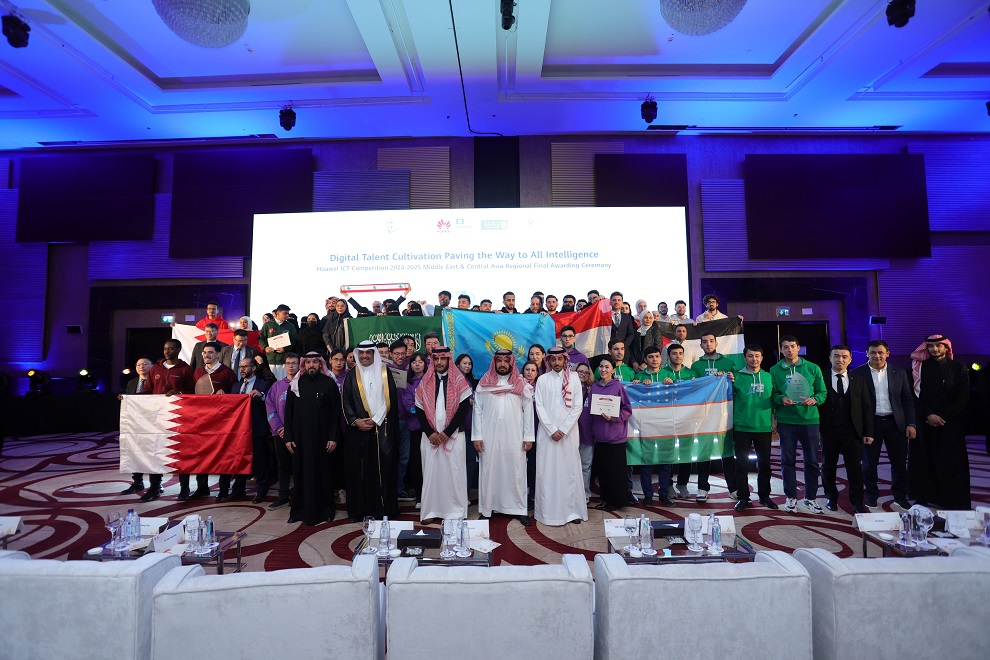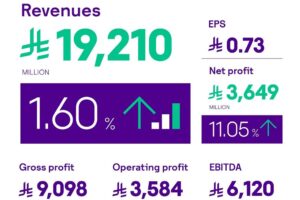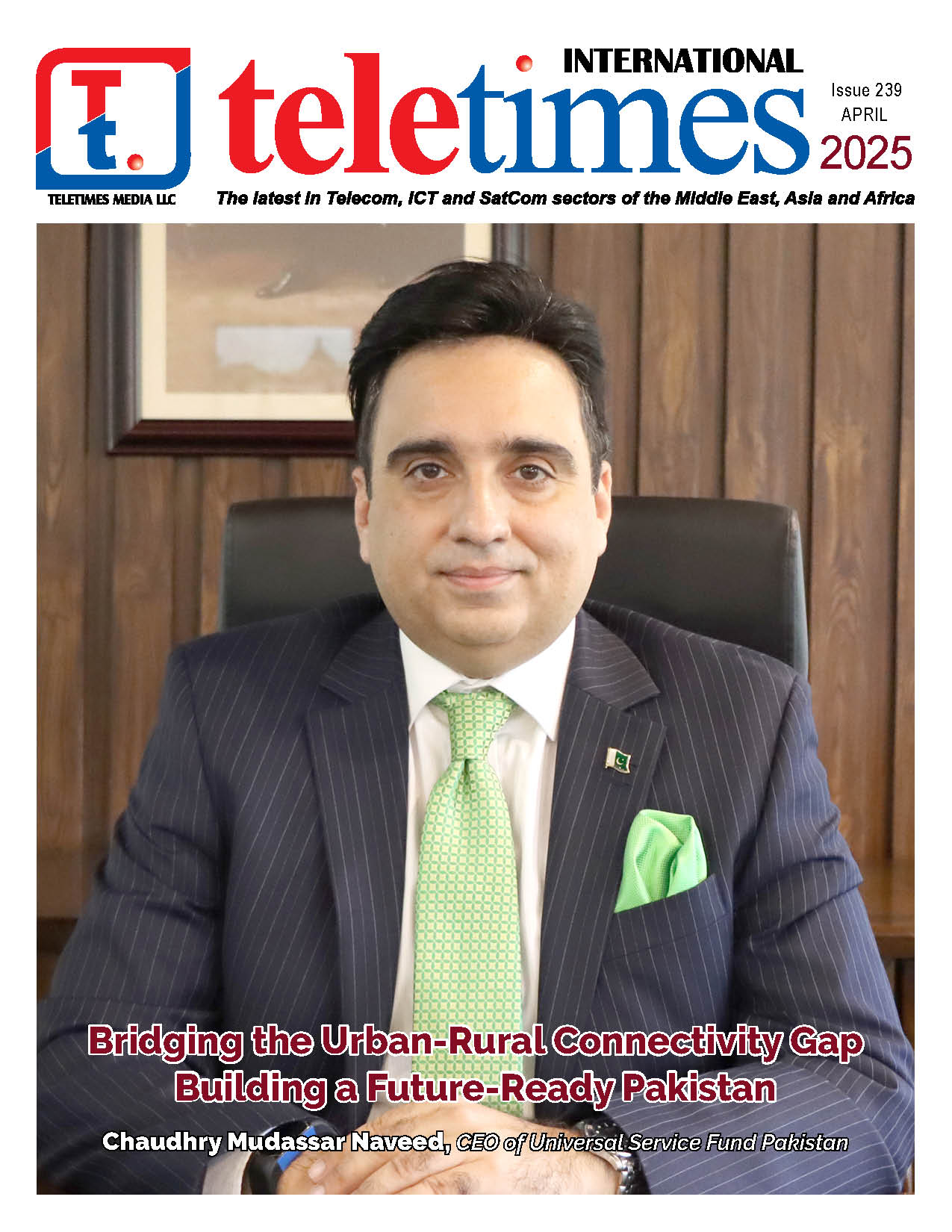- Students from Jordan and Lebanon bagged the grand prizes at the globally acclaimed ICT talent development competition. Students from Kazakhstan and Iraq secured the first prizes.
- Huawei announces the launch of the “T.H.E. GOLD Talent” program in the Middle East and Central Asia to deepen the cultivation of AI talent.
Huawei concluded its 2024-2025 Middle East and Central Asia (ME&CA) ICT Competition with a glittering Regional Finals Awards Ceremony in Riyadh, coinciding the 10th anniversary of Huawei ICT Academy in the ME&CA. The event recognized exceptional performance across Cloud, Network, Computing tracks and innovation competiton, celebrating the achievements of students and instructors from leading regional institutions.
The event was attended by a distinguished gathering, including Mr. Ibrahem AlNasser, Deputy Minister for Future Jobs and Capabilities at the Ministry of Communication and Information Technology; His Excellency Mr. Chang Hua, Chinese Ambassador to Saudi Arabia; His Excellency Dr. Adel Al-Zunaidi, Deputy Governor of the Technical and Vocational Training Corporation (TVTC); His Excellency Mr. Zhan Tao, Director of UNESCO IITE; His Excellency Mr. Sherzod Shermatov, Minister of Digital Technologies of the Republic of Uzbekistan; and Dr. Suliman Almazroua, CEO of the National Industrial Development and Logistics Program.
This year, a team of students from Jordan won the grand prize for the network track, while two student teams from Lebanon secured the grand prize in the Cloud and Computing Tracks. In the Innovation Competition, a team from Qatar emerged victorious, claiming the Grand Prize for their project ‘Be My Sense.’ The first prize category was shared among several teams: a Saudi team for their project ‘NABEEH,’ an Uzbekistan team for ‘Volta,’ and a Pakistani team for ‘PRISM.’ Second prizes were awarded to a Kazakhstani team for ‘Plantos,’ a Jordanian team for ‘3asheqHuawei’, an Iraqi team for ‘EcoGuardians,’ and another Saudi team for ‘CS2R’. In addition to these accolades, the team behind ‘NABEEH’ from Saudi Arabia received special recognition, winning the ‘Most Popular Team’ award after securing the most votes from attendees.
Muhammad Zubair, Consultant at the Al-Khawarizmi Institute of Computer Science, was awarded the inaugural Grand Prize for Instructors, a new category introduced this year at the Huawei ICT Competition finals.
Zhan Tao, Director of the UNESCO Institute for Information Technologies in Education (IITE), said: “The Middle East and Central Asia has a passion for leading innovation and great potential for future development. The Huawei ICT Academy and ICT competition have become a regional flagship, a collaborative network, and an innovative engine for cultivating young digital talents. UNESCO IITE is proud of its collaboration with Huawei and other partners from the region. We wish to continue and further extend the current collaboration to engage more young talents and more partners from the Middle East and Central Asia in our shared mission and goal of achieving quality education and a successful world with peace and prosperity.”
His Excellency Dr. Adel Al-Zunaidi, Deputy Governor of the Technical and Vocational Training Corporation (TVTC), and a strategic partner of the competition, said: ‘I congratulate the Saudi students and all the winning teams in the regional competition finals. I hope they succeed in achieving advanced positions in the global finals for which they have qualified. We at TVTC value our partnerships with the private sector to train and qualify talents for the digital age. We aim to empower young people through initiatives like the Huawei ICT Competition, fostering their leadership in the digital world and driving the realization of Saudi Vision 2030.”
H.E. Sherzod Shermatov, Minister of Ministry of Digital Technologies of the Republic of Uzbekistan, said: “Digital talents are the driving force behind the digital economy, uniting countries and regions in a shared vision of building an intelligent world. Today, we celebrate the invaluable contributions of governments, the private sector, academia, and international organizations through the Huawei ICT Academy program. This initiative opens new doors of opportunity for young ICT visionaries, equipping them with valuable practical experience. We are committed to deepening these fruitful collaborations to ensure a brighter digital future for the next generation.”
Steven Yi, President of Huawei Middle East & Central Asia, reflected on the competition’s impact and said: “ICT talents are the lifeblood of digital transformation. We gathered at this prestigious awarding ceremony to invest in our young people, who are an investment in our lives and future. We should target skilled digital talents who can solve complex industrial problems using Intelligent technologies. Through initiatives like the ICT Competition, we continue to support the development of digital talent who will drive innovation in their respective nations.”
Steven Yi also revealed that Huawei will officially launch “T.H.E. Gold Talent ” program in 2025. This program is an evolution of the current talent cultivation program to meet the requirements of the AI Era. It aims to focus on introducing more advanced courses on AI to solve complex industrial scenarios related to Middle East and Central Asia Region. It also focuses on utilizing advanced technologies like 5G-A, cloud, and AI-based ICT education, smart classrooms in transforming higher education, and helping universities cultivate more competitive all-around digital intelligence talent. The program also targets more proactive collaboration and offers parallel HR programs to unleash the talent’s value through jobs and interns.
During the event, in celebration of the 10th anniversary of the ICT Academy, a series of awards were presented to partners, instructors, and students. King Saud University, the University of Bahrain, Bahrain Polytechnic, and Al-Khawarizmi Institute of Science & Technology, received the ‘Best Partner Award’ among others recognized and appreciated for their continuous efforts and innovations in driving digital transformation.
The competition’s success reflects its growing significance in the regional technology education landscape. This year’s Hauwei ICT Competition has seen unprecedented participation, with over 31,000 student registrations from 640 regional universities and colleges in 19 countries. The competition featured 290 participants in the Innovation Track and 30,900 participants in Practice Competitions, competing across multiple tracks, including Cloud, Network, and Computing. Participants underwent comprehensive assessment through written exams and hands-on lab work, while the innovation track featured both online and onsite defense rounds. It has also garnered support and endorsement from UNESCO, along with over 40 regional ministries, operators, and industry partners.
This milestone event builds upon Huawei’s decade-long commitment to ICT talent development in the region. Through partnerships with 106 ICT academies managed by six ICT Academy Support Centers (IASCs), the program has trained over 300,000 students and certified over 35,000 professionals. This extensive network of 2,000+ qualified instructors continue to play a vital role in developing the digital workforce needed to support the region’s technological advancement.
The full list of winners for the Network, Cloud, and Computing tracks are listed below. The regional finalists will now participate in the global finals of the Huawei ICT Competition, which will take place in May 2025 in Shenzhen, China.
Grand Prize
Network Track
- Jordan – Mohammad Mo’tasem Ahmed Abu Saa’, Lubna Omran Mohammad Issa, and Luma Hassan (Arabi Moh’d) Haswah, Al Balqa Applied University,
Cloud Track
- Lebanon – Mariam Zaiter, American University of Science and Technology; Roudy Maroun, Holy Spirit University of Kaslik; and Raed Diab, American University of Science and Technology
Computing Track
- Lebanon – Ahmad Chehab el Dine and Wassef Hijazi, Beirut Arab University; and Michelle Haddad, Holy Spirit University of Kaslik
First Prize
Network Track
- Kazakhstan – Abduganiyev Damir, Almaty University of Power Engineering and Telecommunications; and Kalashnikova Viktoriya and Saginbek Iskander, Kazakh-British Technical University
Cloud Track
- Iraq – Shko Maghded, Koya University; Rasool Lateef Abdulrahman, University of Garmian; and Rawaz Mansur, University of Human Development
Computing Track
- Kazakhstan – Shalbai Takhmina, Astana International University; Sabyrgali Amanzhan and Dauylbayev Zakir, Almaty University of Power Engineering and Telecommunications
Second Prize
Network Track
- Pakistan – Navera and Tahseen Ahmed, Mehran University of Engineering & Technology; and Muhammad Ishaque, Sindh Agriculture University
- Bahrain – Sara Jawad and Mohamed Alkoofi, Bahrain Polytechnic; and Sara Jawad Aldawood, University of Bahrain
Cloud Track
- Pakistan – Haider Irfan, Ghulam Ishaq Khan Institute; Waleed Ahmed, National University of Science & Technology; and Muhammad Usman Malik, FAST-NU
- Kazakhstan – Kuntas Zhansulu, Yessenov University; Tanatar Ruslan, Al-Farabi Kazakh National University; and Mitalipova Anida, Astana IT University
Computing Track
- Iraq – Mohammed Abdalla Hassan, Abdullah Taha, and Areen Omed Hama, University of Human Development
- Pakistan – Hammas Ahmed Awan and Faizan Shabbir, FAST-NU; Areeba Nazim, University of Engineering & Technology Taxila
Third Prize
Network Track
- Saudi Arabia – Lameer Mohammed T. Kurdi, University of Jeddah; Reema Mohammad A. Alharbi and Lama Sultan A. Alshehry, Princess Nourah bint Abdulrahman University
- Uzbekistan – Rikhsivoev Mokhirjon and Hafizov Shukrullo, Tashkent University of Information Technologies; and Khamidov Bakhodirkhon, Inha University in Tashkent
Cloud Track
- Saudi Arabia – Ruba Saad J. Almalki, University of Jeddah; Rawabi Awad D. Albalawi, University of Tabuk; and Rand Khalid A. Albesher, King Saud University
Computing Track
- Saudi Arabia – Hayat Ghalib A Alshawish, University of Tabuk; Ali Ahmed A Alshehri, Bisha University; Yousef Abdullah R Althebaiti, Ibn Khaldoun National Secondary School – Annafal – Educational Paths












